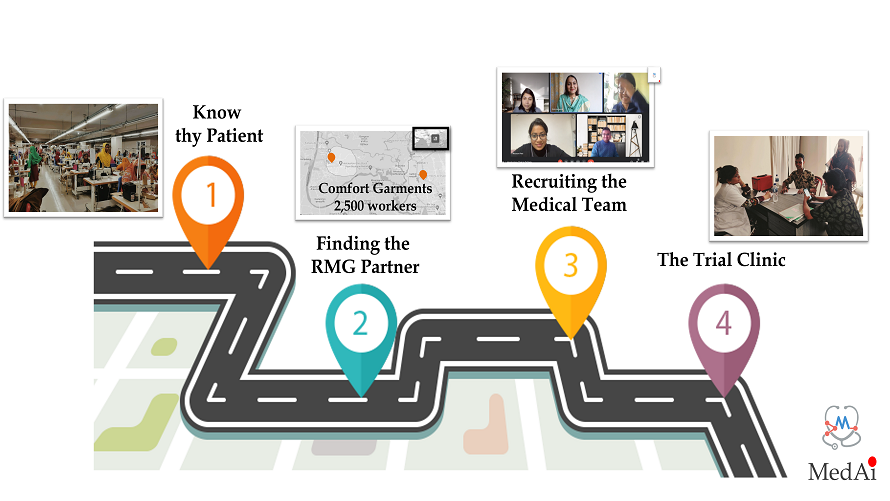Machines are becoming smarter every day, and businesses all over the world are figuring out how to use artificial intelligence (AI) to improve consumer engagement and experience. According to Forbes, 75% of companies that have incorporated AI and its subdivision, Machine Learning, have increased customer satisfaction by more than 10%.
What is consumer profiling?
Consumer profiling (also referred to as "customer profiling") is a modelling method that is used to gather the insights needed to identify, segment and define your target audience.
This means becoming as close to your customer as possible, so you can reach them in the most effective way imaginable. These profiles can include a wealth of information about your clients, such as demographics, preferences, expectations, and behaviour, among other things. Brands can quickly identify, segment, and characterize customers using customer profiles.
This method begins with a focus on your present consumers, then moves on to your ideal target audience and target market to ensure you're looking at the correct individuals.
Once you've got it, it's time to figure out who these people are and how to communicate with them effectively, focusing on the ideal customer insights that can inspire meaningful creativity
What are the advantages?
Businesses can examine transactional data and find trends and correlations in customer behaviour based on the segment they belong to by establishing a customer profile. The following are some of the most important advantages of customer profiling:
- Create a personalized relationship with your customers.
- Customer engagement campaigns should yield higher response rates.
- Improve client satisfaction and loyalty
- Recruit new clients based on the most successful profiles.
- Efficient resource allocation
How AI-powered profiling is the better option?
We are currently seeing a forever exhausting war. A huge number of businesses and brands compete to hear and comprehend their customers faster than their competitors. While businesses are accustomed to reacting in real-time or after the fact to customer contacts, events, and behaviour, it is becoming clear that this is insufficient. Something additional must be done in order to maintain the best possible user experience.
This is where Artificial Intelligence comes into play.This technology has the ability to completely change the way retailers connect with their customers. Deep CRM analytics, in particular, can provide more valuable insights into consumer behaviour, expectations, tastes, and needs, thanks to AI. If done correctly, AI can give businesses the capacity to put the right products in front of the right customers. Benefits of AI-powered customer profiling solutions. For the following reasons, using artificial intelligence technology to construct consumer profiles is far superior to traditional manual segmentation:
- Removal of human bias
- Discovers hidden patterns in data that a human marketer can not spot
- In a continually changing market, segment updates are made automatically.
- Unlimited number and size of segments
- Allows for a higher level of customization.
- Needs little maintenance or human intervention
- Predicting the Trends in Customer Buying Behavior
Real-world examples of AI-powered Analytics
According to a Forbes Insights poll, nearly 9 out of 10 firms that have employed predictive analytics for at least two years have experienced a higher return on investment, with 40% seeing an increase of more than 10%. Some businesses have experienced triple-digit growth.
Take, for example, ServiceMax, a manufacturer's field technician management software. They personalize the purchase process by anticipating the most lucrative path for a prospect to take using machine learning. They take into account all of an individual's previous and current contacts with the brand, as well as assessments of other people who have followed similar patterns. They've reduced bounce rates by 70% and increased time on site and product demo requests as a result of their efforts. The business landscape is fast-changing, with 80 per cent of marketing executives believing that artificial intelligence (AI) would alter marketing in the next five years. With more competition and a greater emphasis on experience, the ball is now in your court to establish trust and credibility with your audience by utilizing the insights you have.
Another company, NBC Universal estimates client practices to build viewership and maintenance. Subsequent to isolating clients into social accomplices, they tracked down a potential chance to customize the landing page experience explicitly for Vizio TV clients. Testing with only these clients showed a 10% increment in viewership. When NBC realized their change would work, they made a similar landing page change for their whole client base.
Conclusion
AI is changing the game for almost all industries. With the rise in the trend of data analysis, the customers' behaviour is being continuously monitored for improving strategies and taking better decisions. Current trends have shown that when it comes to satisfying customers, businesses are no longer fighting the conventional battle; but digital.
References
- https://www.linkedin.com/business/marketing/blog/linkedin-ads/four-real-world-stories-of-b2b-marketers-unlocking-growth-through-ai
- https://www.researchgate.net/publication/355069187_AI_in_Consumer_Behavior
- https://www.section.io/engineering-education/applying-ai-and-ml-to-predict-consumer-behavior/
- https://www.forbes.com/sites/blakemorgan/2019/09/24/50-stats-that-prove-the-value-of-customer-experience/?sh=7644437e4ef2


.jpg)
